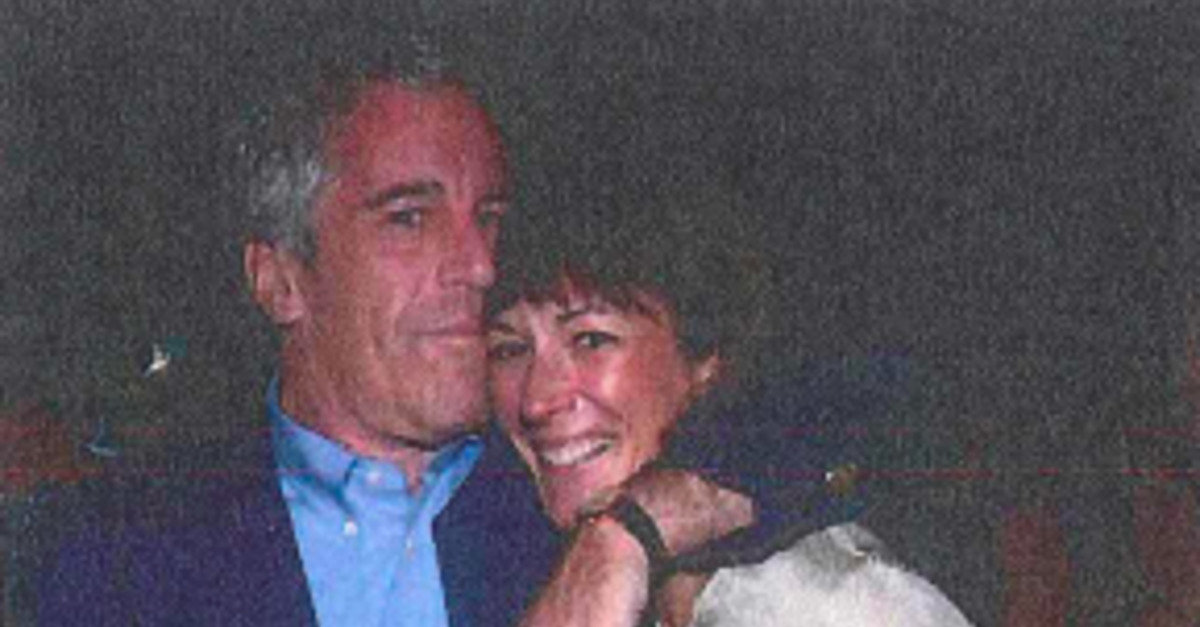
A federal court in New York City denied bail to Jeffrey Epstein‘s former girlfriend and alleged sex-trafficking accomplice Ghislaine Maxwell after a lengthy hearing on Tuesday afternoon.
“The court finds that the government has met its burden of showing by a preponderance of evidence that the defendant is a risk of flight and that no combination of conditions could secure her presence at trial,” U.S. District Judge Alison Nathan concluded.
“The government’s evidence at this early juncture of the case appears strong,” Nathan said–noting that the U.S. Attorney for the Southern District of New York (SDNY) had plans to call on multiple victims and their testimony as well as other “contemporaneous evidence.” Oppositely, she said that most of the defense’s arguments so far were “conclusory.”
“The nature and circumstances here weigh in favor of detention,” Nathan said, stressing that the government was basing its argument against bail on Maxwell’s alleged flight risk–not any risk to the community. The judge determined that “Ms. Maxwell poses a risk of flight.”
The court also endorsed government arguments that Maxwell lied to pre-trial services workers about the amount of her wealth. The judge repeatedly cited Maxwell’s substantial connections abroad in addition to her vast financial largess. Those two factors combined suggested that flight would not be a problem for Maxwell under any circumstances, according to the court.
Maxwell, if allowed bail, would have “the motive and the opportunity to flee,” Nathan explained.
In making her decision, the SDNY judge dismissed defense arguments that had attempted to turn the government’s case on its head.
Maxwell attorney Mark Cohen had essentially tried to argue that his client’s New Hampshire-based hideaway was evidence that she was not, in fact, a flight risk because she had stayed in the country amidst a “ten year” investigation and overwhelming media attention to the Epstein case.
That was, however, not quite enough.
Maxwell’s decision to stay in the United States is important to her argument for bail, Nathan admitted, but “not controlling.” The judge also doubted that the massive property in New Hampshire proved that Maxwell was not in hiding.
Nathan said the “serious nature of the charges, potential sentence she faces, and strength of the government’s case” (based on the indictment and subsequent arrest) “may have changed” Maxwell’s mind about staying in the country.
The brunt of the defense’s motion in support of bail had argued that the novel Coronavirus (COVID-19) pandemic mandated Maxwell’s release.
Without eliding those concerns entirely–in fact, Nathan said she had severe doubts about the Bureau of Prisons’ ability to adequately address and weather the crisis–the court ruled that the defense simply cited the pandemic without any real argument about Maxwell’s own age or underlying health concerns.
The judge also repeatedly cited Maxwell’s foreign connections in order to dispense with various precedents cited by the defense about wealthy defendants who were determined not to be flight risks.
“The court finds the cases not on point and not persuasive,” Nathan said–because of Maxwell’s international repertoire of friends and family.
“In a case such as this one,” the judge said, invoking the alleged offenses against children, “federal law presumes that no condition or combination of conditions” will secure a defendant’s presence. But, she cautioned, the government still has to make the stronger case.
In the end, Assistant U.S. Attorney Alison Moe and her colleagues made the grade.
“The government has met its burden,” Nathan ruled.
[image via DOJ]